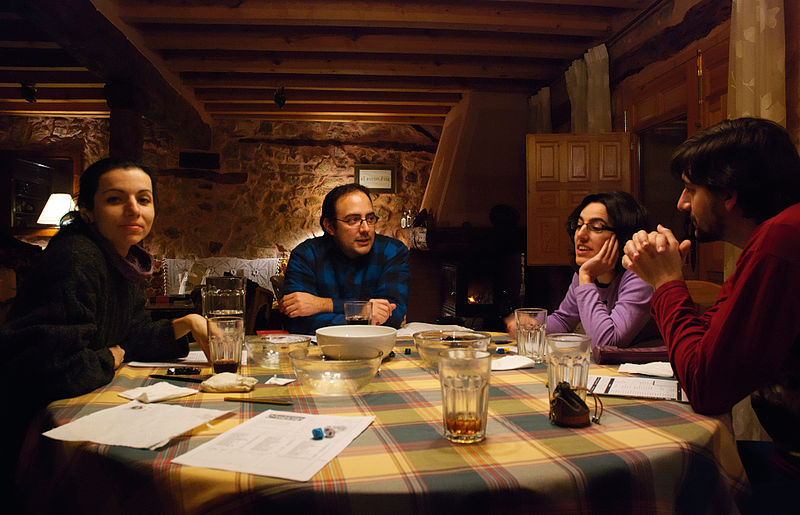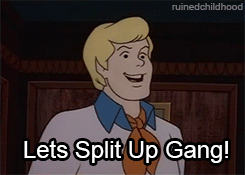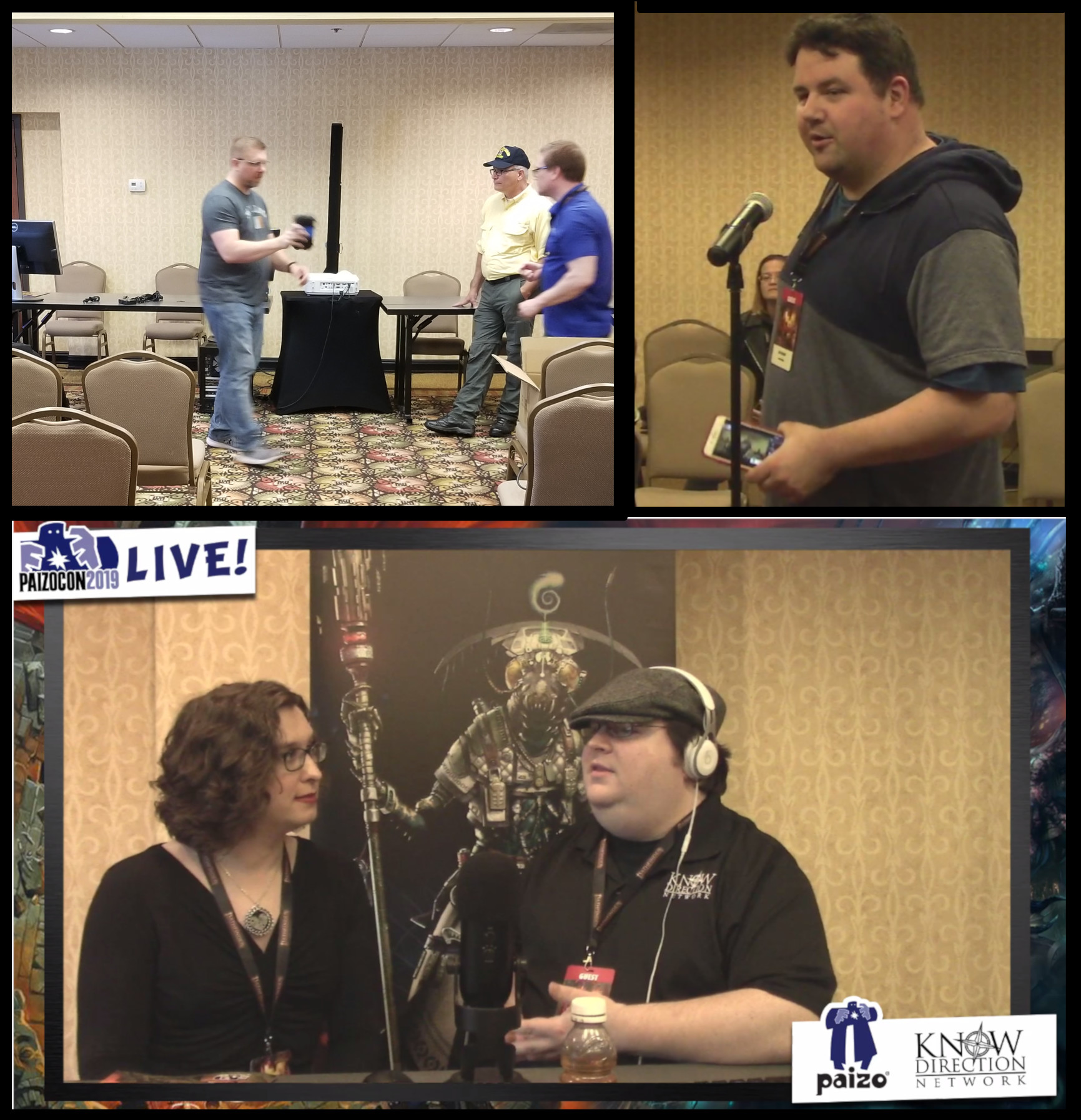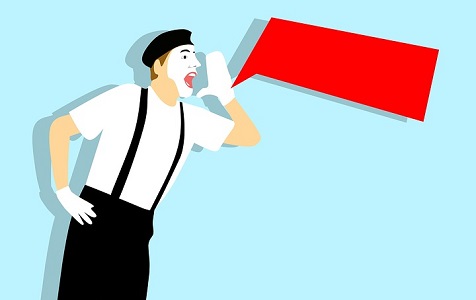How do you measure the success of a convention?
In…
Games played?
Word Count Assigned?
Projects Started?
Deals Made?
Business Cards Given/Received?
Laughter with Friends?
Job Offers?
Drinks Consumed?
For me, it’s measured in relationships formed, forged, and fortified. I go to conventions because I want to be part of the community; to build relationships with other gamers, artists, authors, designers, and people. Because that’s what it’s all about: people.
Sure, I can accumulate assignments with huge word count. Sure, I can successfully pitch a new book idea. Sure, I can continue getting work. But it’s not about the work; it’s about the relationships that we form when we get together at these events. It’s those bonds you form with people that last and make the community stronger.
 Emails and social media posts are fine, but that in-person connection is difficult to reproduce. Even now, on this blog, I’m taking a much more informal approach because I’m trying to convey something that I can’t just outline and describe. It’s a visceral feeling you get when you sit next to someone and have a laugh, discuss a game, share a joke. It’s the interpersonal relationships you forge with people that make a lasting impression.
Emails and social media posts are fine, but that in-person connection is difficult to reproduce. Even now, on this blog, I’m taking a much more informal approach because I’m trying to convey something that I can’t just outline and describe. It’s a visceral feeling you get when you sit next to someone and have a laugh, discuss a game, share a joke. It’s the interpersonal relationships you forge with people that make a lasting impression.
That’s networking.
Tabletop RPGs have a very small community. Everyone talks to everyone else. Everyone knows each other. When you’re just starting out, you’re the new person, the unknown. So start making these connections. You don’t have to know everyone at first. Find a group of people and get to know them. They’ll introduce you to other industry professionals and you’ll grow your network. Just do the best you can in the community you have. It will grow. It may take time, but it will grow.
“So how do I make these connections? Where do I start?”
Start by just having a conversation. We all have at least one thing in common: the game. Ask about that. “Have you gotten a chance to play this weekend? What did you play? That sounds like fun.” Through the conversation you’ll build a connection and can go from there. If you’re talking to an industry professional, they’ll eventually ask if you’re an author or an artist. Be prepared. “Oh yeah, I write a little blog where I convert monsters from movies into Pathfinder.” That’s literally where I started: Mythic Monster Mondays over at Flying Pincushion blog. Mention one of your favorite or most recent additions. If you’re an artist, have a couple of examples handy. You’re showing off your work, but at this point it’s just sharing something you enjoy. There’s a difference between providing a portfolio and just chatting about your work.
If you’re showing a portfolio, it can get really formal. Sometimes there is a time and place for that, usually when you’re getting into serious conversation about handing out work. But if you’re just making those initial connections, make it casual: “I had such a blast designing this archetype for a home game. My friend wanted to play a more weapon focused brawler so I wrote him an archetype and ran it past our GM.”
 Forging that relationship into something lasting requires a bit of extra help past the conversation. Connect on social media so you can stay in touch when the conversation, and the convention, are over. See if they want to catch a game together, even just a quick delve. Delves/quests/demos are a great place to spend a short period of time with someone and slay some zombies. It helps to strengthen relationships! The next time you see each other it won’t be an awkward, “Hello, remember me? I had that mythic monster blog?” Instead it can be, “Hey, zombie slayer! I remember you from that delve we played the other night. Get any good games in?”
Forging that relationship into something lasting requires a bit of extra help past the conversation. Connect on social media so you can stay in touch when the conversation, and the convention, are over. See if they want to catch a game together, even just a quick delve. Delves/quests/demos are a great place to spend a short period of time with someone and slay some zombies. It helps to strengthen relationships! The next time you see each other it won’t be an awkward, “Hello, remember me? I had that mythic monster blog?” Instead it can be, “Hey, zombie slayer! I remember you from that delve we played the other night. Get any good games in?”
Build connections.
Ok, so now you have a connection, what do you do? Nurture it. Fortify it. Try and keep in touch after the convention is over. Ask them if they’re going to any of the other conventions you’re heading to this year; try and make plans to meet up again. Over time, you’ll grow out that network of relationships.
Ok, ok. This sounds like advice for making friends. …and it is! You don’t have to know all of their cat’s names or anything, but the same principles apply with networking. You’re building up trust and familiarity between you and the other person. Stay in contact, be pleasant, be polite. Don’t trash other people behind their backs. Don’t backstab anyone. Work towards helping people and building everyone around you up and they’ll build you up in return. It’s reciprocal.
Paizo has said on multiple panels that there’s three basic things you need to keep getting work from them:
Be good.
Be on time.
Be pleasant to work with.
We’re working this last one with networking. If you’re a talented creative who’s always on time, great! You’ll probably keep getting work. Being pleasant to work with is all about networking and maintaining these relationships.
Ok, that’s enough ranting for one week. Back to my regularly scheduled, organized self next time when I’ve had a chance to rest and recharge from the convention…
Next time I want to show you some places you can go when you’re just starting out and looking for work.






